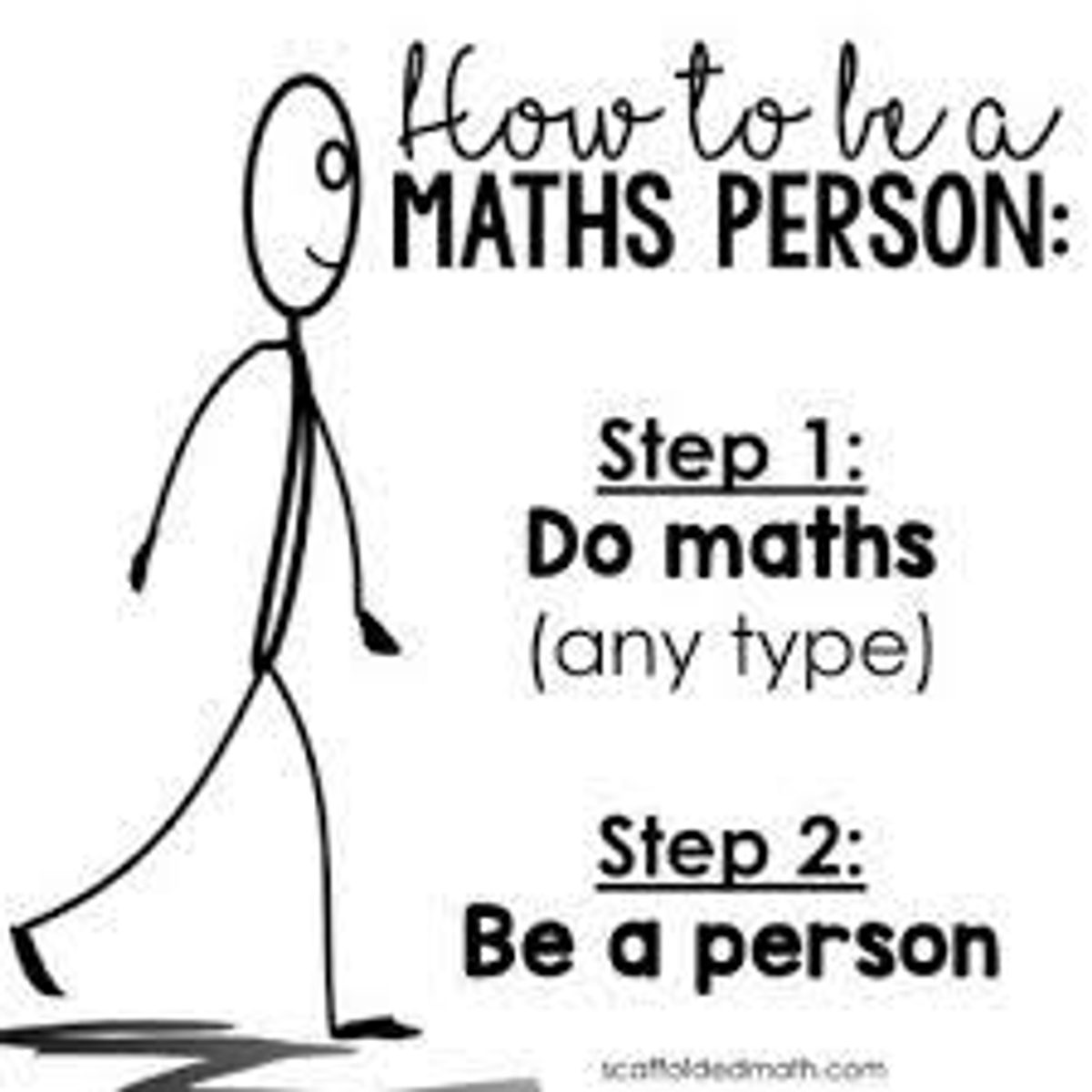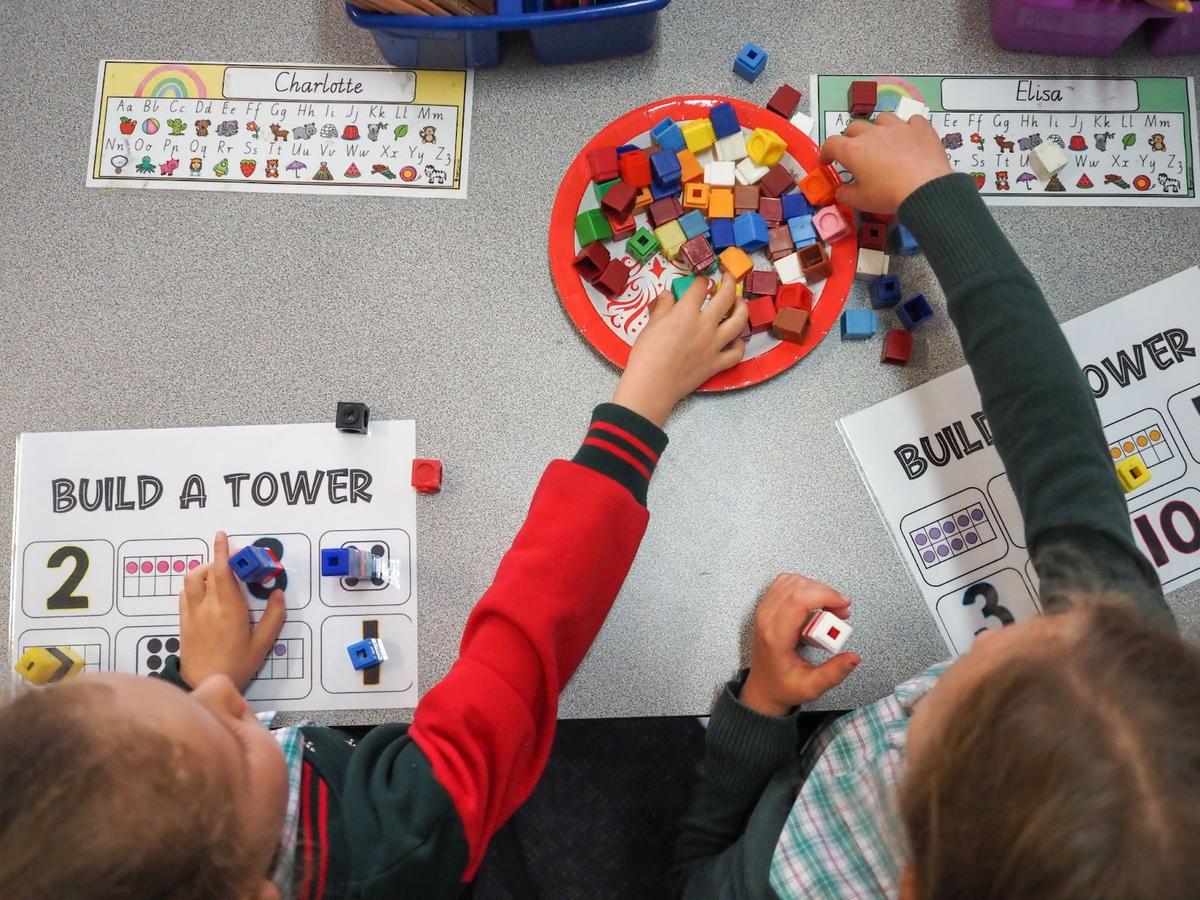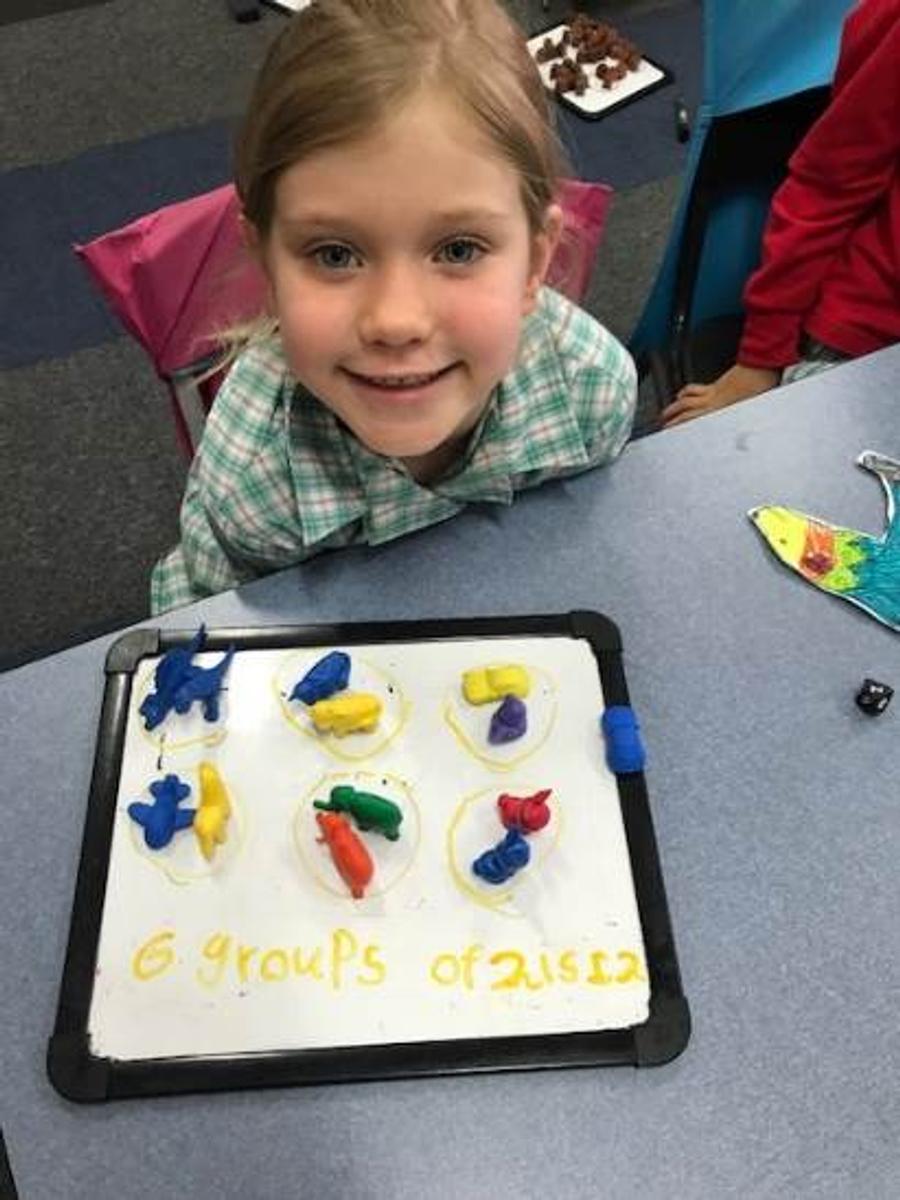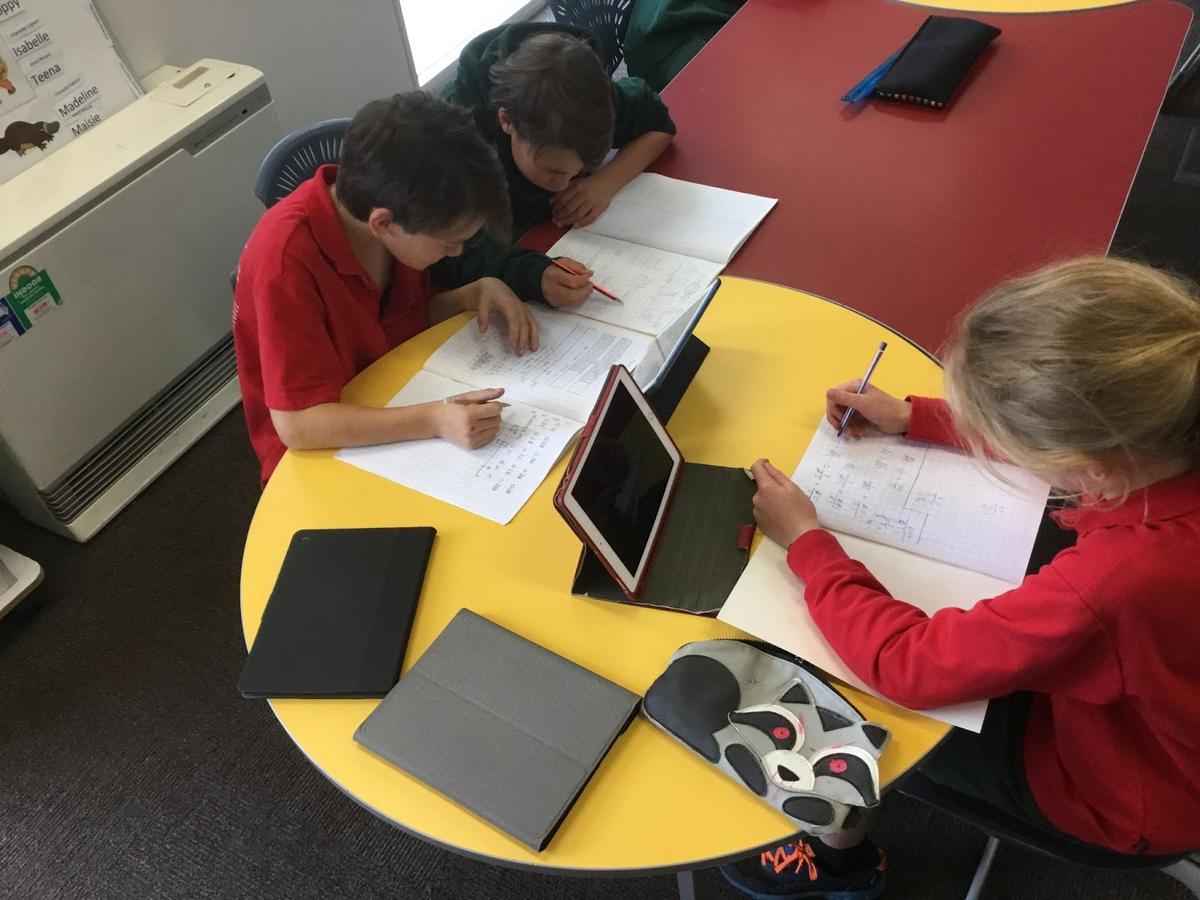Curriculum
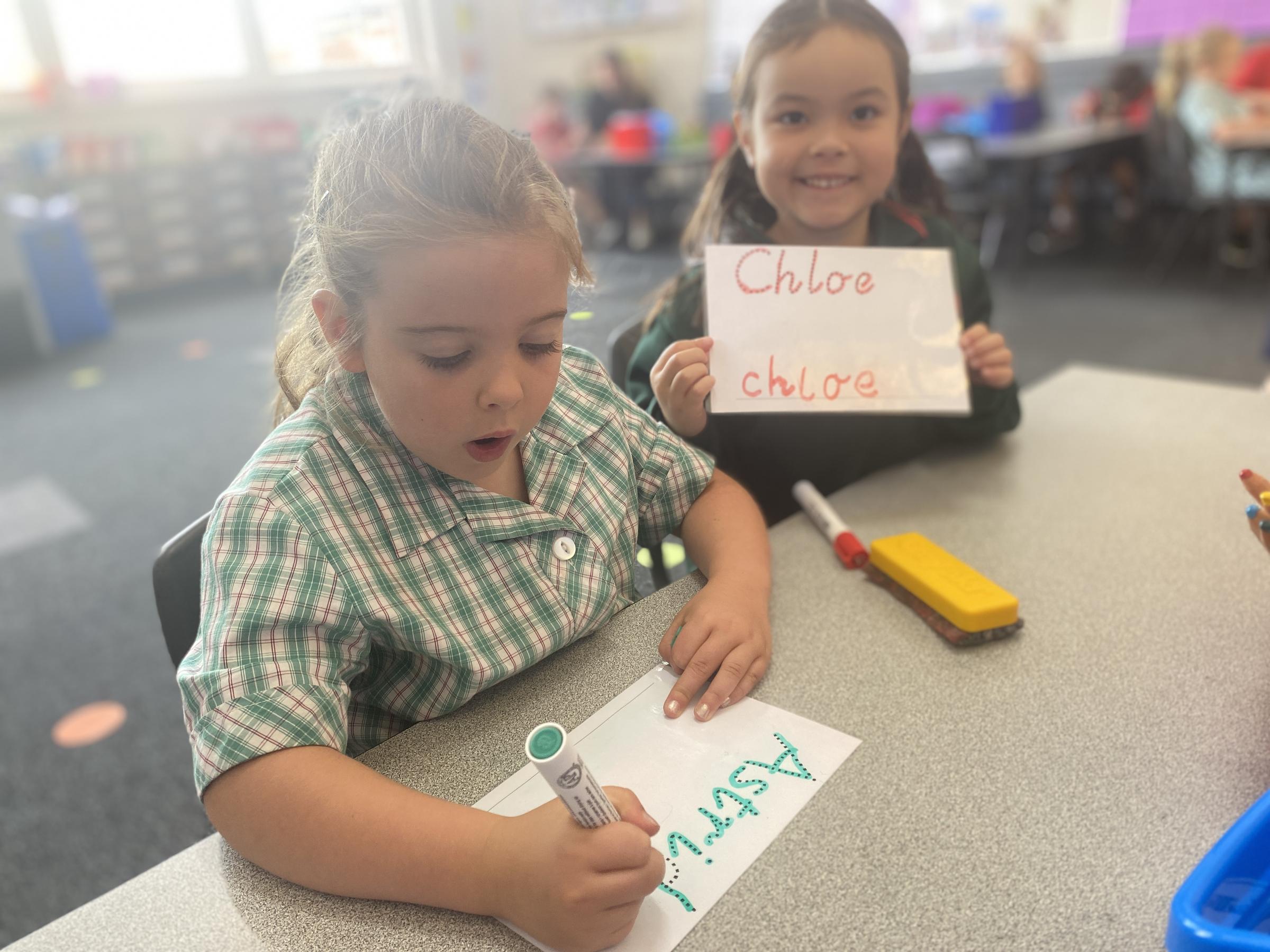
Helping your child with Maths
Part 1: Maths Mindsets
Research shows that children with parents who engage with them mathematically have a distinct advantage over those who don't. If you see part of your job as a parent as helping your child succeed in life, then an integral part of your job is to get involved with their Maths learning. You don't have to be a qualified Mathematician, or even "good" at Maths, to help your children at home. All that's required is modelling resilience and positivity towards what they're doing, and avoiding reinforcing negative attitudes.
Maths Mindsets
Please don’t ever let your child hear anyone (especially you) say things like "I've never been any good at Maths", "I've always hated Maths", "I've never seen the point of Maths" etc. These are the most effective ways to kill your child’s interest in Maths and their belief in its usefulness in life. This may mean that you need to change your own mindset regarding Mathematics, and that's fine. Get your child to help you. It's fine to find things difficult, to not be able to do something YET. The problem comes when that's used as an excuse for not persevering. If you want your child to succeed in Maths (or anything) you must genuinely have a positive attitude towards it. Nobody is born with expertise in any area (writing, sport, art, languages, Mathematics) and absolutely anybody is capable of becoming better today in any of these areas than we were yesterday. We’re just not great at it YET.
A key feature of people who love Maths is not that they keep doing it because they already know it all; they keep doing it because they keep finding things that they didn't already know. Harnessing the fear of the unknown and turning it into excitement is one of the most important things in understanding why people persevere with and enjoy Maths - or anything in life.
Schools do it differently now
You might recognise the question, but your child’s approach is completely different from the one you know… Not a problem…
- get your child to explain their method
- teach them yours
- telling your child the answer won’t help them, but talking about the Maths in the problem and working on strategies to solve it will
Teaching someone else something is not only a great way to work out how well you understand it, but also the process of trying to explain it, provides excellent motivation to explore the ‘why’ behind things rather than just settling for being able to replicate a rote-learned process. Work together to help each other understand the methods. See if you can spot similarities. Do both of them work, why? Can you find reasons why one may be "better" than the other? Most importantly, which approach makes more sense? Learning new things is wonderful and continues throughout our lives. In fact, not (yet) understanding something is a prerequisite for learning something new.
Why would I ever tell a child something
that they can discover for themselves?
Keep an eye out for the next Maths newsletter post - we will be looking at supporting your child in finding Maths all around us - not just at school and in homework and also how to make Maths playful and joyful for the whole family.
If you have any questions, please feel free to contact me or your child’s Teacher.
Carolyn Platt, Mathematics Leader.
Helping your child with Maths
Part 2: Maths at Home
In the last post we looked at the importance of having a positive Maths mindset. This time we are looking at the fun of finding Maths all around us and using that to help support your child’s learning at school.
Finding Maths at home (apart from homework)
Model mathematical positivity at all times, even when your child isn’t doing homework. Ask Mathematical questions about everything. Depending on the age of your child, you might find the Maths in collecting and sorting things (leaves, blocks, buttons, toys, crockery & cutlery when setting the table); noticing, making and continuing patterns; measuring and building; cooking and adapting recipes; shopping (counting out enough potatoes, estimating the cost and the change, percentages off in sales); telling the time (clocks, calendars, seasons); reading maps; noticing and describing shapes; keeping score in sports.
Maths in games.
At school we don’t just answer right or wrong Maths questions we build, draw and make with Maths and we talk about, question and use Maths to strategise, problem-solve and play games. There are lots of wonderful games you can play at home too that involve Maths and offer rich opportunities to talk about using Maths for enjoyment and strategy. Not only do these games help you help your child build their Maths skills at home without stress, they are a fabulous opportunity to have some wonderful family time together!
There is a great website here with loads of Maths games, sorted by year levels and whether they involve number sense, the operations (addition, subtraction, multiplication, division) or other areas such as probability, measurement or geometry. They are all presented in videos, they require very little in the way of set-up and many include good questions to ask your child while playing. If you don’t have dice at home, there are free apps for virtual dice such as this one. We also have a collection of “Maths support games to play at home” on Compass in the “Supporting your child at home’ folder. Another good source of games and puzzles from leading American Maths education researchers, Dan Finkel and Katherine Cook, can be found here. And here is an overview of some fun card games sorted by year levels.
If you have any questions, please feel free to contact me or your child’s Teacher. In the meantime enjoy your positive, powerful and playful Maths experiences with your children!
Carolyn Platt, Mathematics Leader.


